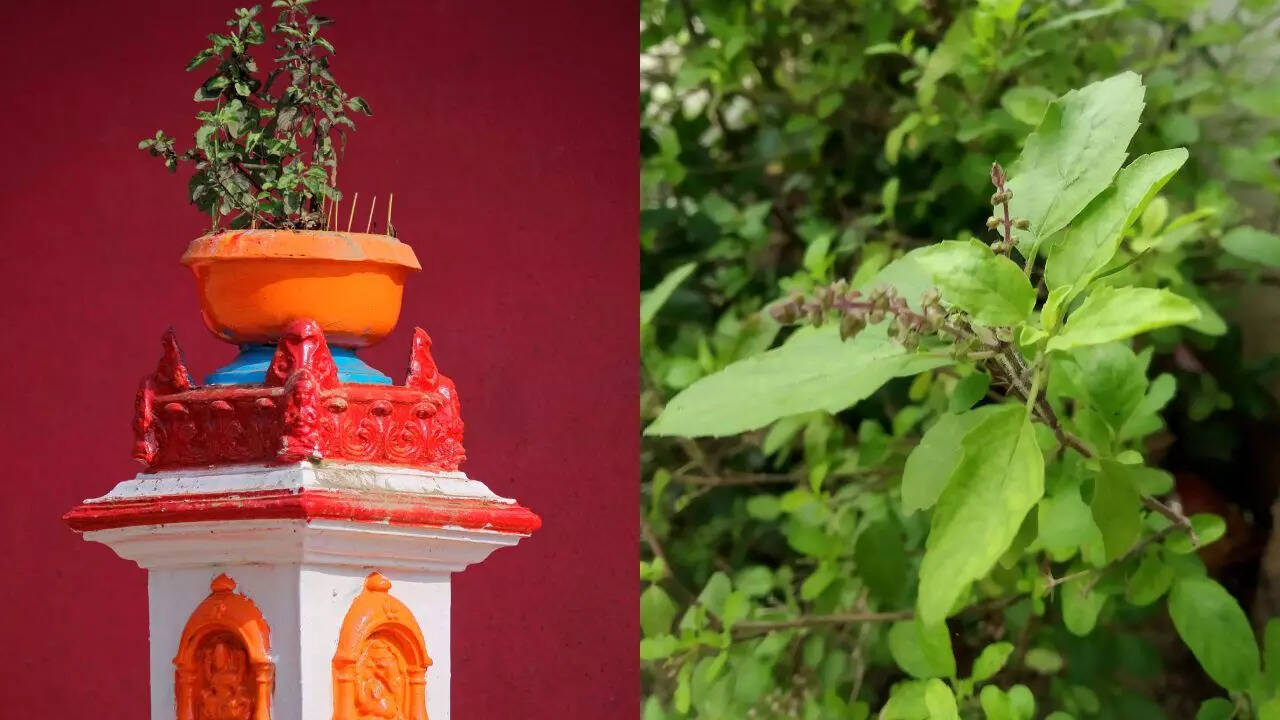
There’s no denying that Tulsi also known as Holy Basil holds a sacred place in Hindu rituals and it is believed that any puja is incomplete without the divine presence of Tulsi as it is associated with Goddess Lakshmi, the divine consort of Lord Vishnu. Tulsi leaves in Hindu mythology symbolizes purity, devotion, and blessing, and is essential for worshipping Lord Vishnu and Lord Krishna. However, there are several restrictions on offering Tulsi and it is believed that it should not be offered to Lord Shiva and Lord Ganesha, and the answer to this practice is deep rooted in Hindu mythology!

What mythology says about itAs per the scriptures of Hindu mythology and texts like Shiva Purana, Tulsi is believed to be the earthly form of Goddess Vrinda, the devoted wife of Jalandhar, an asura (demon). To protect and establish peace Lord Shiva slayed the Asura Jalandhar and protected the cosmic order. When Tulsi heard about the demise of her husband, she denounced Shiva and gave him a curse that no part of Tulsi leaves should never be used in Shiva’s worship. This was a reflection of her sorrow and refusal to bless Lord Shiva’s adoration with anything related to her being.This is the reason why Tulsi leaves are offered to the Shiva Linga or Lord Shiva’s idol in rituals.

Why is Tulsi not offered to Lord Ganesha?According to Hindu mythology, it was believed that Tulsi once proposed marriage to Lord Ganesha, who was then observing celibacy to fulfill his guardian role. Ganesha respectfully declined her proposal, which angered Tulsi, leading her to curse him. After divine intervention, Tulsi was transformed into a plant (holy basil), and Ganesha was decreed not to receive offerings of Tulsi in worship.Because of this, even though Tulsi leaves are universally respected and widely used in Hindu rituals, but they are not offered in Ganesha Puja. Instead, Dhruva grass and red Jaswanti flowers are offered to Lord Ganesha.Lastly, according to the Padma Purana and Skanda Purana: Tulsi worship is primarily associated with Lord Vishnu and his avatars. Tulsi is revered as an incarnation of Goddess Lakshmi, and is sanctified mainly for Vishnu-related rites. The Padma Purana also narrates the curse related to Tulsi’s refusal towards Lord Ganesha after he declined her proposal for marriage and this is why Tulsi leaves were not suitable for Ganesha worship in these scriptures.Why is Tulsi offered to Lord Krishna?Tulsi is offered to Lord Krishna because it is considered His most beloved and sacred plant, symbolizing purity, devotion, and spiritual connection. In scriptures, it is said that neither Krishna nor Vishnu accepts any offering without Tulsi leaves, as these leaves are dearer to the Lord than gold or jewels. Tulsi is believed to embody divine qualities and blessings, and offering its leaves with love and devotion brings one closer to Krishna, ensuring spiritual progress and divine grace.







